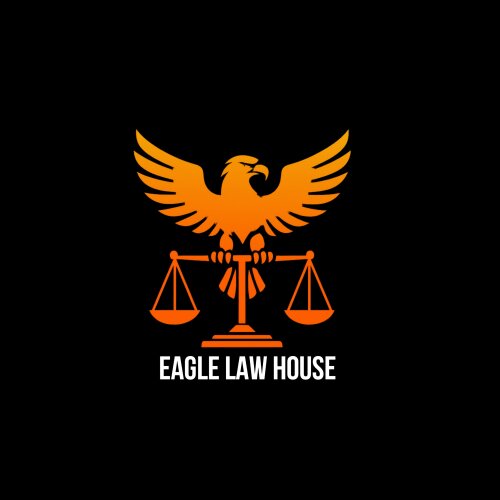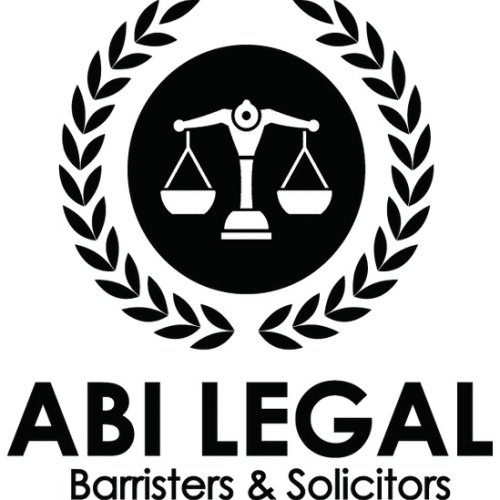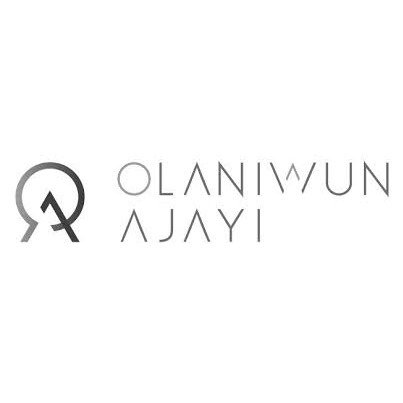Best Nonprofit & Charitable Organizations Lawyers in Nigeria
Share your needs with us, get contacted by law firms.
Free. Takes 2 min.
Or refine your search by selecting a city:
List of the best lawyers in Nigeria
Legal guides written by Adeola Oyinlade & Co:
- Procedure and Requirements for Work Permit and Visas in Nigeria
- The Step-By-Step Procedure of How to Apply for Microfinance Bank License Online in Nigeria
- How to Ensure the Smooth Recognition and Enforcement of Foreign Judgments in Nigeria
About Nonprofit & Charitable Organizations Law in Nigeria
In Nigeria, Nonprofit and Charitable Organizations play a significant role in societal development by addressing social, economic, and environmental issues through various initiatives. These organizations are typically established to pursue a social cause or provide public benefits without the intention of profit generation. The legal framework for these entities is primarily governed by the Companies and Allied Matters Act (CAMA) 2020, which details the formation, registration, and regulation of these organizations. Additionally, nonprofit organizations may also operate as trusts, societies, or charitable trusts, each with specific legal guidelines that must be adhered to.
Why You May Need a Lawyer
Navigating the legal landscape for Nonprofit and Charitable Organizations in Nigeria can be complex. Here are some common situations where legal assistance may be necessary:
- Forming and registering the nonprofit organization with the Corporate Affairs Commission (CAC).
- Ensuring compliance with Nigerian tax laws and applying for applicable tax exemptions.
- Drafting and reviewing bylaws and other foundational documents to ensure they align with legal requirements.
- Handling employment contracts and labor law compliance for nonprofit staff.
- Obtaining necessary permits and licenses for specific charitable activities.
- Advising on governance issues, including board composition and responsibilities.
- Assisting with mergers, joint ventures, or collaborations with other nonprofits.
- Addressing legal disputes or litigation involving the organization.
- Guiding on fundraising regulations and ensuring ethical and legal fundraising practices.
- Compliance with international regulations if the organization operates across borders.
Local Laws Overview
The legal landscape for Nonprofit and Charitable Organizations in Nigeria is established under several key regulations:
- Companies and Allied Matters Act (CAMA) 2020: This act provides the comprehensive legal framework for the registration and management of nonprofit entities. Under this act, nonprofits can be registered as companies limited by guarantee.
- Federal Inland Revenue Service (FIRS) Regulations: Offers guidelines on tax obligations and potential exemptions for nonprofits.
- Non-Governmental Organizations Regulatory Bill: Aims to regulate the activities of NGOs and might impact legal compliance protocols (note: its status and implications should be verified as amendments are ongoing).
- Customary and Religious Laws: Depending on the nature and operation areas of the nonprofit, customary or religious laws may also apply and influence legal compliance.
Frequently Asked Questions
What is the primary legal framework for registering a nonprofit in Nigeria?
The primary legal framework is the Companies and Allied Matters Act (CAMA) 2020, which guides the formation and registration of non-profit organizations.
Are nonprofits in Nigeria eligible for tax exemptions?
Yes, nonprofits can apply for tax exemptions from the Federal Inland Revenue Service (FIRS) if they are established solely for charitable purposes and meet specific criteria.
What are the governance requirements for a nonprofit?
Nonprofits must have a governing board responsible for oversight, maintain accurate records, comply with annual reporting requirements, and ensure fiduciary responsibilities are met.
Do nonprofits need a lawyer for registration?
While not mandatory, hiring a lawyer is advisable for guidance on complex legal requirements and ensuring compliance during the setup and operational phases.
How can a nonprofit raise funds legally?
Nonprofits can raise funds through donations, grants, and fundraising events, but must comply with regulations regarding ethical fundraising and financial reporting.
Can a nonprofit engage in political activities?
Nonprofits cannot engage in partisan political activities but may advocate for policy changes related to their mission.
What types of nonprofit structures exist in Nigeria?
Nonprofits in Nigeria can be structured as companies limited by guarantee, incorporated trustees, or societies, each requiring specific registrations and compliance protocols.
Are there reporting requirements for Nonprofits?
Yes, nonprofits must file annual financial returns and keep records of minutes of board meetings and financial transactions as per CAMA and FIRS requirements.
What happens if a nonprofit fails to comply with legal requirements?
Non-compliance can lead to penalties, fines, or deregistration by the Corporate Affairs Commission (CAC) and relevant regulatory bodies.
Can foreign nonprofits operate in Nigeria?
Foreign nonprofits can operate in Nigeria but must register with the appropriate Nigerian authorities and abide by local laws and regulations.
Additional Resources
For further information and support related to Nonprofit & Charitable Organizations in Nigeria, consider reaching out to the following:
- Corporate Affairs Commission (CAC): Handles the registration and regulation of nonprofit entities.
- Federal Inland Revenue Service (FIRS): Offers guidelines on taxes and exemptions applicable to nonprofits.
- Nigerian Network of NGOs (NNNGO): Provides advocacy, networking, and support for Nigerian nonprofits.
- Legal Aid Council of Nigeria: May assist with legal advice or representation for nonprofits.
Next Steps
If you're seeking legal assistance in the field of Nonprofit & Charitable Organizations in Nigeria, it's important to consult with a lawyer who specializes in this area. Here are some steps you can follow:
- Identify your specific needs and legal requirements related to your nonprofit.
- Research and reach out to legal professionals or firms with expertise in nonprofit law.
- Schedule consultations to discuss your needs and evaluate potential legal advisors.
- Ensure you collaborate with a lawyer to secure legal documents, contracts, and compliance strategies.
- Stay informed about updates in local laws and regulations that might affect your nonprofit operation.
Lawzana helps you find the best lawyers and law firms in Nigeria through a curated and pre-screened list of qualified legal professionals. Our platform offers rankings and detailed profiles of attorneys and law firms, allowing you to compare based on practice areas, including Nonprofit & Charitable Organizations, experience, and client feedback.
Each profile includes a description of the firm's areas of practice, client reviews, team members and partners, year of establishment, spoken languages, office locations, contact information, social media presence, and any published articles or resources. Most firms on our platform speak English and are experienced in both local and international legal matters.
Get a quote from top-rated law firms in Nigeria — quickly, securely, and without unnecessary hassle.
Disclaimer:
The information provided on this page is for general informational purposes only and does not constitute legal advice. While we strive to ensure the accuracy and relevance of the content, legal information may change over time, and interpretations of the law can vary. You should always consult with a qualified legal professional for advice specific to your situation.
We disclaim all liability for actions taken or not taken based on the content of this page. If you believe any information is incorrect or outdated, please contact us, and we will review and update it where appropriate.
Browse nonprofit & charitable organizations law firms by city in Nigeria
Refine your search by selecting a city.

















